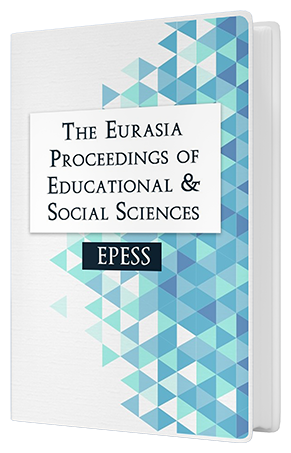Psychological Assessment of the Wellbeing and Economic Related Issues of the Albanian Population Living in the Pandemics
DOI:
https://doi.org/10.55549/epess.1221502Keywords:
Psychological wellbeing, Mental health, Education level, Revenues level, EconomyAbstract
As Covid19 pandemic exposed all people to be living in the pandemic, psychological concern was raised referring to vulnerable populations who could be developing psychological concerns. Therefore, during November 2022 an assessment survey was launched online aiming to screen and assess the psychological wellbeing of Albanian adults referring to their level of education and economic relatedness. Objectives of the study consist in (i) assessing the socio-demographic and economic data referring to the perceived financial expectancies and hopefulness; (ii) screen the psychological concerns related to mental health and wellbeing in relation with their economy; (iii) assess comfortability when meeting others with levels of education. Data was processed through SPSS and was analyzed using non-parametric Chi square tests and crosstabulation. Results showed that economic problems are relevant to the level of personal revenues. Sensitivity towards mental health problems is detected with the rise of the level of education. People’s capacities to resuming life just like before the pandemic has no relationship with personal revenues. Still, people report that meeting the others does not make them feel better and calmer, and makes people feel happier only in minor cases. Conclusions show that social distance could have taught people that being physically distant from others, has their own benefits.Downloads
Published
Issue
Section
License
Copyright (c) 2022 The Eurasia Proceedings of Educational and Social Sciences

This work is licensed under a Creative Commons Attribution-NonCommercial-ShareAlike 4.0 International License.
The articles may be used for research, teaching, and private study purposes. Any substantial or systematic reproduction, redistribution, reselling, loan, sub-licensing, systematic supply, or distribution in any form to anyone is expressly forbidden. Authors alone are responsible for the contents of their articles. The journal owns the copyright of the articles. The publisher shall not be liable for any loss, actions, claims, proceedings, demand, or costs or damages whatsoever or howsoever caused arising directly or indirectly in connection with or arising out of the use of the research material. All authors are requested to disclose any actual or potential conflict of interest including any financial, personal or other relationships with other people or organizations regarding the submitted work.




